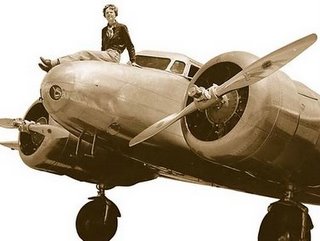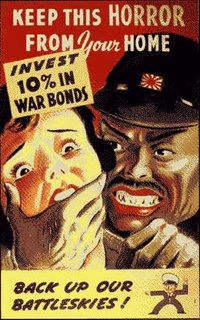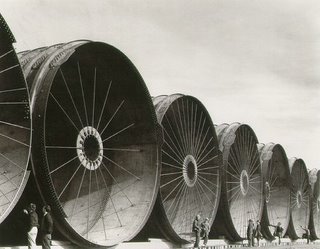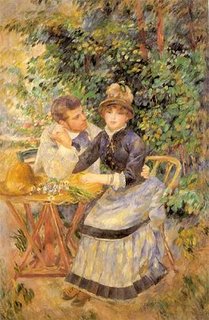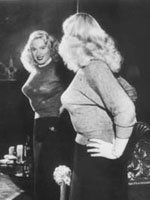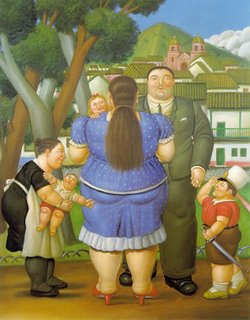 A FICTIONAL NON-FICTION TRIP TO JAPAN
A FICTIONAL NON-FICTION TRIP TO JAPAN
By Jim Kittelberger
IN THREE PARTS.
PART TWO.
The blue bus reached the end of it’s run when we arrived at Komaki AFB in the southern part of Honshu, the main island of Japan. But the journey for some of us wasn’t over just yet. Several of us, including Ray I was glad to discover, were transferred to a six-by, a colloquialism for a large truck designed to carry troops and of course supplies, the six-by denoting the size.
Our travel in relative comfort, at least by military standards, was over. We loaded our duffel bags into the truck before seating ourselves on the wooden benches that ran from front to back on either side. The trick now would be to hang on and not be thrown out, not unlike a rodeo rider trying to stay on a bucking horse. Off we went, down what we would certainly call unimproved roads bouncing and inhaling the smell of spent diesel fuel. A smell, that strangely enough, after fifty years I still associate to my days in Japan and the unloved six-bys.
After a relatively short ride we arrived at what was to be our home for the foreseeable future, Gifu AFB.
Gifu was described to me by a career airman, who had been many places in his time, as the best place he’d been, or as the place he remembers most fondly. He had come to Gifu, with a group of guys directly from Korea when that cleared up over there, so perhaps by comparison it would seem a place of calm and peace. He was only a budding career airman at that time but he was older than the incoming group that I was a member of. Thus we always thought of him as the more serious one and someone we could ask questions of, and we did. Introducing A.A. Tilley from the great state of Oklahoma. AA was a tall slender bespectacled, even-tempered man who spoke with a cowboy twang and if we weren’t all hanging out in the same uniform would have looked at home wearing blue jeans with a piece of straw, or a Marlboro cigarette hanging loosely from his mouth.
As in college or any other fraternal organization we were all assigned rooms. Ray and I were assigned to a room already occupied by AA, along with the new fourth member of America’s protectors, Billy Tumbler from Selma, Alabama. Billy had hair the color and texture of tassels of corn silk springing from field corn in mid August. He was blond, skinny and tall, cocky and friendly at the same time. He stood with one hip sticking out, smart-ass without words. He was also a world-class poker player, in his own mind.
In any army, in any country, at any time of the day, there is a card game going on. Camp Gifu was no exception. It is a time-killer for sure, but it’s also a game that breaks through all social and ethnic barriers quickly and gets to what is important to everyone, and that’s winning. Army camps, or any other kind of camp, i.e. marine, air force, navy, and coast guard, even lumber, you get the idea are alike. Men with time on their hands and over confident in their belief that they are the best card shuffler of the bunch and everyone else will have to learn to beware of the fate that is soon to befall them.
Footlockers, a standard in all barracks, covered with the handy blanket are ready in an army minute for the action to come. Billy, his mouth salivating in expectation of the fleecing of these sheep before him, stood in his cocky pose and said he was sure the others would take his money soon, but he was willing to go ahead and try to do as well as he could, the standard misdirection statement that is only good one time.
Oh poor Billy. Before he had the chance to beguile the sheep with his stories of his heroic days in good ole Selma in the early fifties he was fleeced. How could this be? A lesson learned early by poor Billy that appearances are sometimes deceiving and there is always someone better or slicker than you.
Camp Gifu’s mission was, as we were to find out, a mobile communications outfit. Teletype and radio operators, and the needed maintenance units to keep everything working manned the outfit. We were in business to go where needed in case another Air Force base in the immediate Pacific went off the air because of weather or whatever. In my time there we went to Taiwan to help out and also to Okinawa after a Typhoon played havoc with them. Which brings me to one of only a couple war stories I retain much memory of.
On a mission to Taiwan, which in those days was known as Formosa (a statement of absolutely no importance to anyone except map makers) we were flying over the China Sea when my war story began:
As we lumbered through the sky most of the passengers were asleep from boredom. I was dozing fitfully as I was and am not now a great fan of aeronautics and it’s ability to keep an aluminum and steel cylinder with wings in the air. When a flight sergeant appeared in the aisle demanding our attention.
"We’re having engine problems. He stated. "We’ve feathered one engine and another is running erratically."
We were flying in a four-engine plane, so one engine feathering is not extremely serious, but two is trouble big-time.
"We may have to ditch", the sergeant said.
Complete quiet among the passengers, something whenever I think back upon it rather surprised me. Not that I was thinking of it at the time. When he made his next pronouncement I must tell you I became completely calm. A very strange reaction I thought then, but after years of contemplation, maybe not so strange after all.
"If we get the signal we will have to exit the airplane". He started to tell us how to put on the parachutes.
"When you get to within", and I really don’t remember exactly what number he said, two feet, ten feet, twenty feet, I don’t remember, you will have to pull the release mechanism located here. He then showed us how that was going to work. "The reason this is important is because if you don’t hit the release, the parachute may drag you under the water."
"Oh shit", I thought. But still no panic, just the feeling that he and I were the only people in the plane and he’ll be O.K. but I won’t."
My only thoughts were that if I do by dumb luck bail out successfully, release the mechanism at the proper time, and drop into the water, I would certainly drown, because a swimmer I am not. In the time we had after preparing ourselves for the eventuality I thought I should take my glasses off and I did and put them into my breast pocket along with my wedding ring which I figured would slide off in the water, and buttoned them up.
The sergeant with one attempt at calming us told us that life rafts would be shoved overboard, and would be waiting for us.
I figured if I didn’t kill myself jumping out, I would forget, or not do the release mechanism properly, and end up under the China Sea, or I would not be able to swim to a raft. I was a goner and I knew it.
Anticlimax.
The second engine did not stop and we landed in Taiwan safely. The funny thing, if there is such a thing, is there was very little talk about any of it, like it never happened. I’m sure the shrinks have a medical term for such a reaction. But I wasn’t interested then and I’m not interested now.


